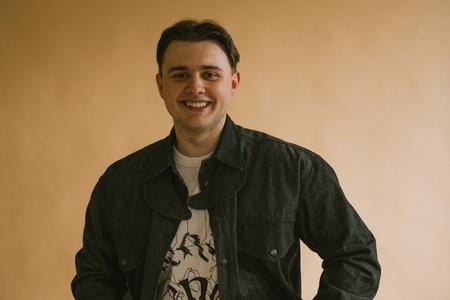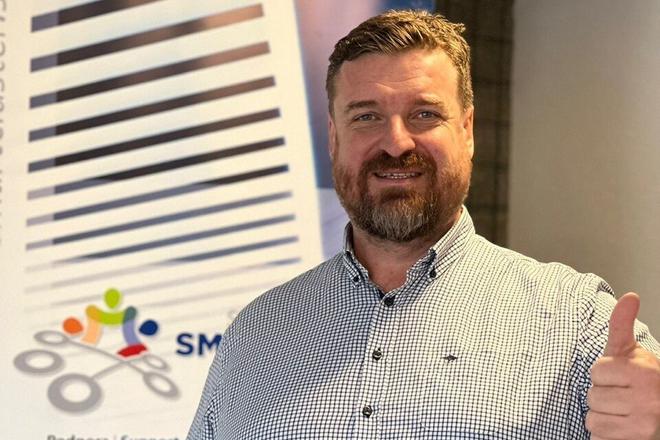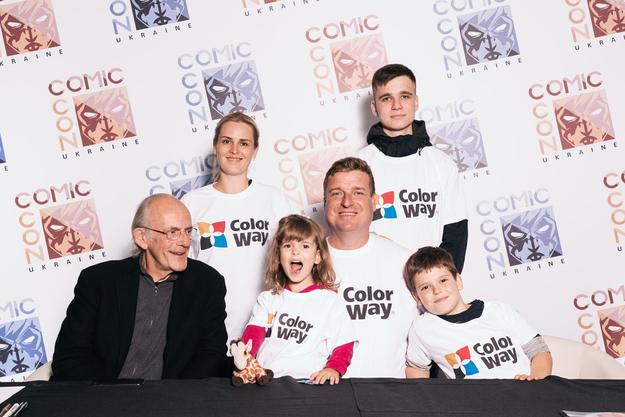Ukrainian version | Slovak version
Ukrainian entrepreneur Oleg Krystiuk says he has always been a dreamer. And for as long as he can remember he has enjoyed making his dreams come true.
“For me, experimenting is the most interesting thing on the journey to achieving a goal,” he tells The Slovak Spectator. “I enjoy exploring new horizons.”
It hasn’t always been easy, the Kyiv-born businessman admits. Successful projects have often been followed by failures, but he has never given up. Every success, he says, drove him to set a new goal and start working towards it.
Krystiuk started his first small business in 1992, a year after the break-up of the Soviet Union and Ukraine becoming an independent country, while continuing to do different jobs in several companies in Kyiv. It helped him grow professionally, he says.
One of those jobs was at a Ukrainian computer manufacturing company, and he gradually worked his way up until he was appointed director.
“It was interesting to sell products all over Ukraine and take over the market, which we did in the 2000s with Bravo computers,” he recalls.
Krystiuk says the move allowed him to fulfil another dream - of showing fellow Ukrainians that a computer was a very ordinary device that would change their life – but it also fuelled an urge to create something of his own.
In 2007 he established his own company, ColorWay, selling mobile phone and computer accessories, ink, cartridges and photo paper. The firm grew to be one of the largest in Ukraine.
“Our company helped make printing a photo in an instant an affordable and easy process,” he claims. “And most importantly, we made people happy because they could print their happiest moments in their own home.”
A few years later, the firm began selling products in Moldova, Georgia, Armenia, Kazakhstan and Azerbaijan and in 2012, ColorWay opened its first office in the EU - Krystiuk chose Bratislava.
Today, it has operations in 30 countries from the USA to Hong Kong and its own central warehouse in Šamorín, southern Slovakia, from which it supplies its products to Europe and other countries around the world.
And it remains a market leader at home - its products are sold in more than 20,000 retail stores across Ukraine, and before Russia’s full scale invasion, a ColorWay product was sold every 3-4 seconds in the country.
Despite his business success, Krystiuk remains down to earth.
“First of all, I’m a human being and - this is very important - a Ukrainian,” the 49-year-old says, adding that he is also a son, a husband and a father of three. “Last, but not least, I’m also a businessman.”
Opening a business in Slovakia
Getting a foothold in European markets was not easy for Krystiuk’s firm. His experience from post-Soviet countries convinced him he could sell his goods through various distributors, focusing on marketing and brand development from Ukraine, without having to open an office in Europe.
But at a computer trade fair in Germany he found that while there was interest among western European customers in ColorWay products, they were hesitant about having to receive large orders shipped in containers from Ukraine, and instead urged him to build a reputation for ColorWay as a European firm, he recalls.
“Try to work for a year or two, and we’ll come back,” he was told.
He took the advice on board, but it still took a long time before the Bratislava office was opened – just setting up meetings for the process was a struggle.
“Everything was slower compared to Ukraine,” the entrepreneur says. “Summer began and people went on holiday. A month before Christmas, everyone was preparing for the festive season. Afterwards, everyone was recovering.”
Ukrainians are ‘hungry for success’ and want to achieve their goals immediately, he explains, which made the slow progress frustrating.
The office opened in Bratislava eventually, but Krystiuk reveals that he and his partners had considered other cities in central Europe, too, but that they had all had disadvantages - Hungary was off the table because of the language barrier, Czechia because there were a lot of Russian businesses, and Poland was believed to have a bad business reputation at that time. That Slovakia borders with Ukraine was another plus, as was the similarity between the two countries’ languages. Slovakia’s use of the euro was another draw, Krystiuk and his partners agreed.
“My partners and I travelled for half a year looking for a place for our warehouse,” the entrepreneur said. “And as I drove around Slovakia, I realised what a beautiful country it was.”
His European partners call Slovakia a big ‘dedina’ (village) – in a good way - Krystiuk reveals. Although not perfect, he says he has seen a change in the country in recent years, even if Slovaks themselves may not have.
“Slovakia has become a much better place to live over the last 10 years,” he says.

Conservative EU citizens
Krystiuk is a firm believer in immersing oneself in any country in which one plans to open a new business so as to better understand local cultural nuances, customers, trends, and the market itself. He argues this knowledge means you can experiment and quickly adjust business strategy.
Over the years, he has learnt that western and central Europeans, including Slovaks, are conservative when it comes to trying new things, being satisfied with what they already have.
“If someone opens a new bakery with delicious desserts, no one will go there. They’ll go to the old one where their parents have bought bread for years,” he says.
EU citizens aspire to a higher standard of living but do not want to do experiment because they see it as risky, Krystiuk adds. He also believes working less and having more free time is extremely important to people in western and central Europe.
After ColorWay opened its branch in Slovakia, the firm began to establish partnerships with European companies, and today works with different distributors, retail chains, and e-shops across the continent.
“We have ambitious goals for our business development in Europe,” Krystiuk declares.
However, not everything has gone smoothly in Slovakia. Krystiuk decided to close down the Bratislava office during the pandemic and moved operations to the warehouse in Šamorín.
Another problem is finding the right staff. He says that he would like to hire Slovak workers to sell his products, but talented young Slovaks tend to leave the country and those who do come for interviews with him tell him they do not want to work hard or do a stressful job.
“It sounds strange to me,” he says.
Although ColorWay has shut down its branch in Bratislava, it continues to sell its products around Europe. The sales of its Slovak company, Capital System, grew by 80 percent in 2022, to €1.3 million.
Real faces of Ukraine
The last 18 months has been very difficult for Krystiuk as he has had to watch his fellow Ukrainians suffer following Russia’s invasion in February 2022.
“I dream about our victory and hope that it will happen as soon as possible,” he says, adding that it will only be once the war is finished that Ukrainians will be able to start building their own future again. “We’ll create a better Ukraine, one which will be an important part of the EU.”
He says he has noticed a change for the worse in Slovaks’ attitudes towards Ukrainians after the invasion. Meanwhile, against a background of an influx of Ukrainian refugees to Slovakia and various ongoing crises that have impacted society, he has seen how prone Slovak people seem to be to believing disinformation spread from Russia and by pro-Russian parties and propagandists in Slovakia. He says many Slovaks appear to have forgotten about the 1968 Prague Spring and how it was crushed by Warsaw Pact troops’ invasion of Czechoslovakia.
But at the same time, he points out, there are many Slovaks who support Ukraine and acknowledge the contributions of Ukrainian people to Slovak society.
“There are Ukrainians who moved to Slovakia and did not just become wage earners. They have also organised cultural events, achieved things, opened their own businesses,” he notes. “They are the real faces of Ukraine.”
Ukrainians are also responsible for how Slovak people see them, he stresses.
He hopes to see more Ukrainian businesses thrive in Slovakia and elsewhere in Europe.
“Ukraine wants to be part of the EU. You need to prepare for this,” Krystiuk says before thanking Slovakia for helping Ukraine and providing opportunities for his business.
This story was published with support from the International Press Institute's Ukraine regional reporting fund.




 ColorWay founder Oleg Krystiuk. (source: LinkedIn)
ColorWay founder Oleg Krystiuk. (source: LinkedIn)
 (source: Facebook/Oleg Krystiuk)
(source: Facebook/Oleg Krystiuk)